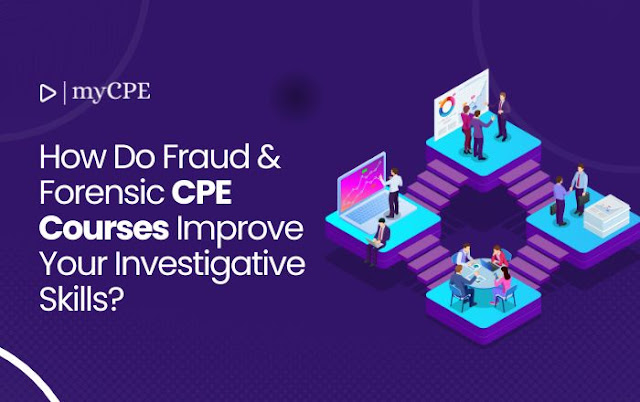Introduction
- Explaining the importance of Continuing Professional Education (CPE) credits for Certified Fraud Examiners (CFEs).
- Overview of the article’s focus on CFE CPE courses and how they contribute to professional development.
Understanding CFE CPE Courses
- Defining CFE CPE courses and their significance in maintaining CFE certification.
- Highlighting the relevance of staying updated with industry trends and regulations through continuous learning.
Benefits of CFE CPE Courses
- Enhancing fraud examination skills: Detailing how CFE CPE courses help practitioners sharpen their investigative techniques and fraud detection abilities.
- Meeting certification requirements: Explaining how completing CPE courses ensures CFEs fulfill certification renewal criteria.
- Networking opportunities: Emphasizing how participation in CPE courses fosters connections with peers and industry experts, enriching professional networks.
Types of CFE CPE Courses
- Online CFE CPE courses: Discussing the convenience and flexibility of accessing CPE content online.
- In-person workshops and seminars: Highlighting the advantages of hands-on learning and face-to-face interactions in traditional CPE settings.
- Self-study materials: Exploring the availability of self-paced study materials tailored to CFEs’ schedules and preferences.
Choosing the Right CFE CPE Courses
- Accreditation and approval: Advising CFEs to select courses approved by recognized accrediting bodies to ensure compliance with certification standards.
- Relevance to professional goals: Encouraging CFEs to prioritize courses aligned with their career objectives and areas of specialization.
- Reviews and recommendations: Suggesting
CFEs seek feedback from peers or review platforms to gauge the quality and
effectiveness of CPE courses.
Earning CPE Credits Online
- Exploring the convenience of earning CPE credits remotely through online courses.
- Tips for maximizing online CPE learning experiences, such as creating a conducive study environment and setting realistic goals.
Tracking and Reporting CPE Credits
- Providing guidance on accurately documenting CPE activities to maintain certification records.
- Highlighting the importance of keeping track of course completion certificates and other relevant documentation for reporting purposes.
Resources for Finding CFE CPE Courses
- Listing reputable organizations and platforms offering CFE CPE courses.
- Mentioning industry associations and professional networks as valuable sources for discovering CPE opportunities.
Staying Updated with CFE CPE Requirements
- Discussing the evolving nature of CFE CPE requirements and the importance of staying informed about updates and changes.
- Advising CFEs to regularly review certification renewal guidelines and deadlines to ensure compliance.
Conclusion
- Summarizing the key takeaways regarding earning CFE CPE credits.
- Encouraging CFEs to prioritize professional development through continuous learning and engagement with CPE courses.
- Reinforcing the significance of maintaining CFE certification through ongoing education and skill enhancement.



Comments
Post a Comment